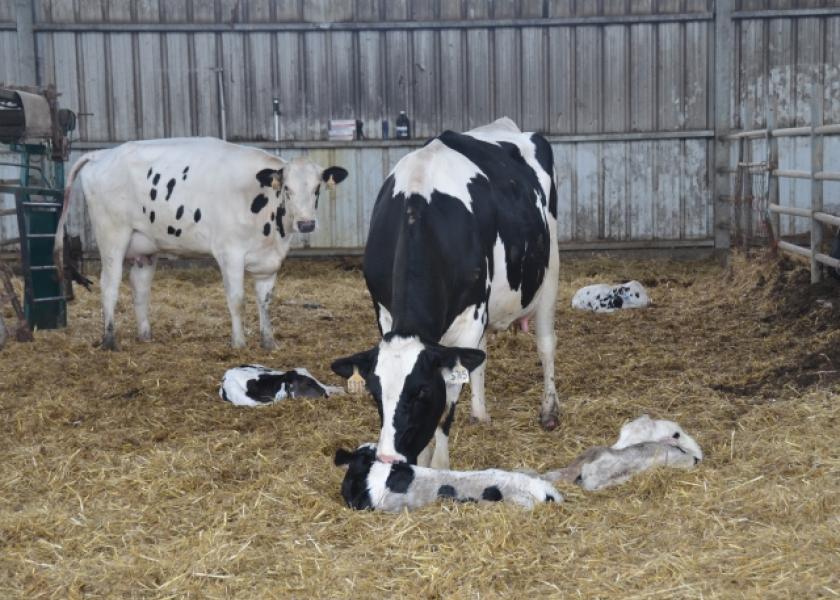Cows Could Benefit from Aspirin After Calving

Calving can be an incredibly stressful event for an animal, and the physiological changes that occur after calving can be equally stressful.
According to Adrian Barragan, Assistant Clinical Professor at Penn State University, one of the main challenges fresh cows face is the systemic inflammatory process, commonly known as swelling. Although this process is normal, when exacerbated, it can have severe negative effects on a cow's health and performance.
Several factors contribute to poor udder health after calving, with improper dry-off practices being one of the main issues.
“Although necessary, drying cows off is a risk factor for subclinical and clinical mastitis as it increases the internal pressure in the udder cistern causing milk leakage, opening a direct path to the udder for pathogens,” Barragan says. “Recently, it was reported that cows with a higher milk production at dry-off are more likely to have milk leakage, delayed formation of the keratin plug in the teat canal, and higher systemic inflammation. A few management practices, such as switching milking frequency from 3x to 1x the week before dry-off or a combination of decreasing daily milk frequency and intermittent milking days, have been studied and have shown to significantly decrease cow milk yield at dry off. However, the effects of these practices on cow metabolism are not yet fully understood, and therefore, caution should be exercised when implementing.”
Studies have shown that a different approach may be able to help cows cope with excessive inflammation. According to Barragan, post-partum anti-inflammatory treatment has shown to have positive effects on udder health.
“In a research study where cows were treated with aspirin (daily drenches) or meloxicam (oral capsules) for three days after calving, authors reported that treated cows had significantly lower somatic cell scores during several months after calving compared to placebo cows,” Barragan notes. “Similarly, aspirin trials conducted in collaboration with Penn State, where cows were treated with aspirin boluses (every 12 hours) for two days after calving, we found that treated cows had around 43,000 cells/mL less somatic cell counts during the first five DHIA tests when compared to placebo cows.”
Though drying off cows is a necessary process, it can sometimes lead to poor udder health going into the next lactation. Fine tuning gradual dry-dry off practices can help prevent udder health issues from occurring after calving, however, providing anti-inflammatory drugs, such as aspirin, can also be beneficial during the early lactation period.
For more on animal health, read:
- Manage Body Weight at Calving, Improve Fertility
- Do’s and Don’ts for Down Cow Care
- Don’t Lose Another Cow to Hemorrhagic Bowel Syndrome







